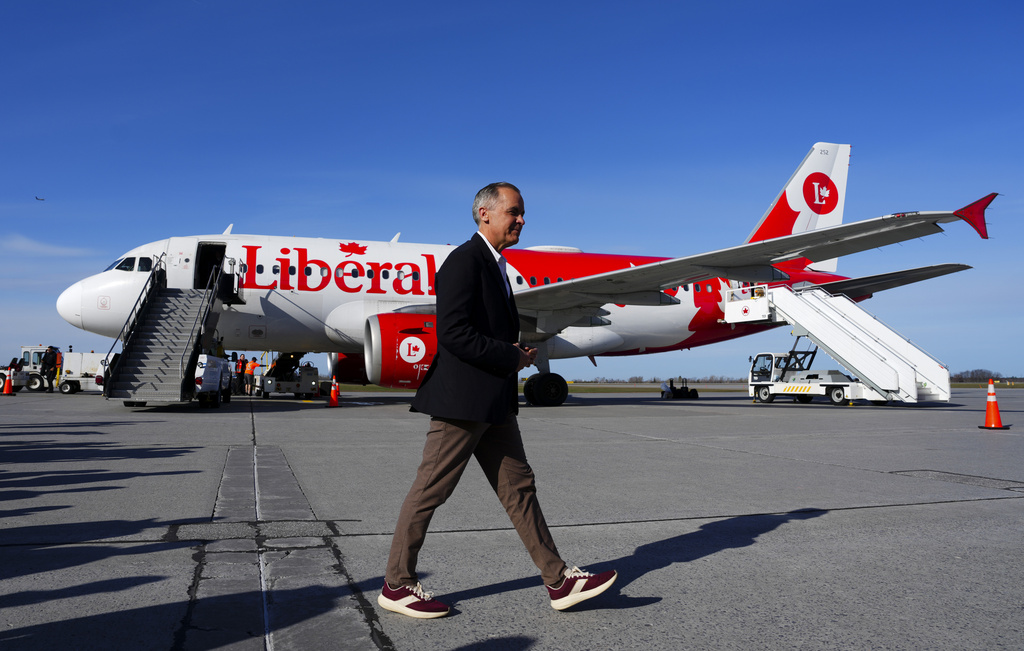Prime Minister Mark Carney’s Liberal Party won Canada’s federal election on Monday, capping a stunning turnaround in fortunes fueled by U.S. President Donald Trump’s annexation threats and trade war.
After polls closed, the Liberals were projected to win more of Parliament’s 343 seats than the Conservative Party, though it wasn’t immediately clear if they would win an outright majority that would allow them to pass legislation without needing help.
The Liberals looked headed for a crushing defeat until the American president started attacking Canada’s economy and threatening its sovereignty, suggesting it should become the 51st state. Trump’s actions infuriated Canadians and stoked a surge in nationalism that helped the Liberals flip the election narrative and win a fourth-straight term in power.
“We were dead and buried in December. Now we are going to form a government,” David Lametti, a former Liberal Justice Minister, told CTV.
“We have turned this around thanks to Mark,” he said.
The Conservative Party’s leader, Pierre Poilievre, hoped to make the election a referendum on former Prime Minister Justin Trudeau, whose popularity declined toward the end of his decade in power as food and housing prices rose.
But Trump attacked, Trudeau resigned and Carney, a two-time central banker, became the Liberal Party’s leader and prime minister.
Trump was even trolling Canada on election day, suggesting on social media that he was in fact on the ballot and repeating that Canada should become the 51st state — an assertion that Canadians find deeply insulting. He also erroneously claimed that the U.S. subsidizes Canada, writing, “It makes no sense unless Canada is a State!”
Poilievre, who has been criticized for not taking a firmer stance against Trump, responded with a post of his own.
“President Trump, stay out of our election. The only people who will decide the future of Canada are Canadians at the ballot box,” he posted hours before polls closed.
Trump’s truculence has infuriated many Canadians, leading many to cancel U.S. vacations, refuse to buy American goods and possibly even vote early. A record 7.3 million Canadians cast ballots before election day.
“The Americans want to break us so they can own us,” Carney said in the runup to the election. “Those aren’t just words. That’s what’s at risk.”
Election day came as the country grappled with the fallout from a deadly weekend attack at a Vancouver street fair that led to the suspension of campaigning for several hours. Police ruled out terrorism and said the suspect is a local man with a history of mental health issues.
Poilievre implored voters to “Get out to vote — for a change” as he and his wife cast their ballots Monday in their Ottawa district.
After Trump seized the election spotlight, though, his similarities to the bombastic American president might have cost him.
Reid Warren, a Toronto resident, said he voted Liberal because Poilievre “sounds like mini-Trump to me.” And he said Trump’s tariffs are a worry.
“Canadians coming together from, you know, all the shade being thrown from the States is great, but it’s definitely created some turmoil, that’s for sure,” he said.
Historian Robert Bothwell said Poilievre appealed to the “same sense of grievance” as Trump, and that, “It’s like Trump standing there saying, ‘I am your retribution.’”
“The Liberals ought to pay him,” Bothwell added, referring to the American president. “Trump talking is not good for the Conservatives.”
Foreign policy hadn’t dominated a Canadian election as much since 1988 when, ironically, free trade with the United States was the prevailing issue.
Carney and the Liberals cleared a big hurdle by winning a fourth-straight term, but they have daunting challenges ahead.
In addition to the sweeping U.S. tariffs on Canadian goods, Canada has been dealing with a cost-of-living crisis for some time. And more than 75% of its exports go to the U.S., so Trump’s tariffs threat and his desire to get North American automakers to move Canada’s production south could severely damage the Canadian economy.
While campaigning, Carney vowed that every dollar the the government collects from counter-tariffs on U.S. goods will go toward Canadian workers who are adversely affected by the trade war. He also said he plans to keep dental care in place, offer a middle-class tax cut, return immigration to sustainable levels and increase funding to Canada’s public broadcaster, the Canadian Broadcasting Corporation.
(AP)











